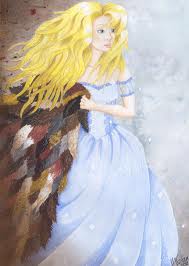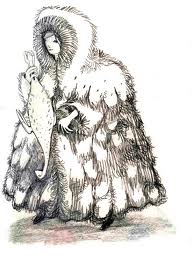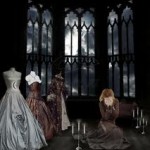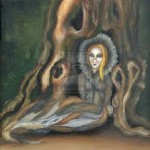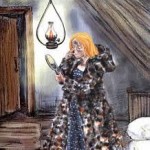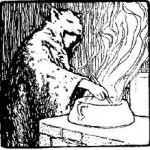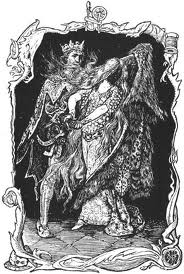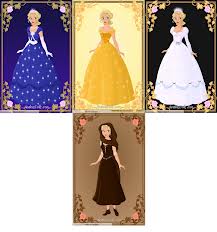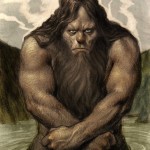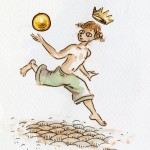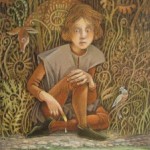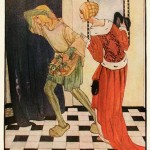The following is an article from H2G2 that was published some years ago. It points out one possible effect of being taught that the bad things that happened to you were your fault, that your are bad. Often the counterbalancing strategy is to be “perfect”. If your could have done it all perfectly, then you would not have been hurt. This instills a kind of black and white or “dichotomous” thinking. The reality is that you were not hurt because you were bad and that being perfect would have changed nothing. Moving away from dichotomous thinking opens up a broad spectrum of possibility in our lives.
For a printable version click here: Dichotomous Lives of Abuse Survivors
———————————————————————————————-
It is a common consequence of traumatic life experiences – particularly in children that have suffered at the hands of abusive parents or bullying – to continue in life with a degree of dichotomous thought; a sense of a firm line separating their experience of life and its complications in rigidly polarised terms of ‘Good’ or ‘Bad’, with an impairment of ability to establish the capacity for both in their experiences, or weigh up such situations in more relative terms.
Safety First
This dichotomy of mind comes from a natural instinct that exists in all living things – the need for security and protection from harm. From an evolutionary perspective it is evident that the categorisations of Good and Bad in life experience can mean the difference between survival and extinction, but for children, not ready or able to take such responsibilities, this instinct for survival can develop much earlier and with more significant consequences for them in adulthood – especially when the danger comes all too often from those meant to protect them, at home.
Threat and Elimination
Naturally, in such circumstances as abused children suffer, they will develop a sense of life-or-death imperative with skills for assessing their environment and learning what steps they can take to control it, to find some sense of safety. Thus they learn to recognise people they can trust, safe places to go, behaviour in themselves and in others likely to precipitate abuse, and should be avoided. So, it causes a rigid black-or-white appraisal of all human experience that continues into adulthood.
Dichotomy in Relationships
It is most often recognisable in survivors’ relationships with others. It is hardly surprising that anyone who has suffered a prolonged period of victimisation at the hands of a dangerous and violent person would come away from that with very clear concepts of what constitutes good and bad, but it’s important to recognise when such a dichotomy is necessary for personal survival, and when it causes difficulty in a healthy relationship; where such a polarity of attitude can inevitably cause unnecessary conflict.
You Absolute Star / You Total B******
It may often be the case that a person may develop a relationship with someone they find to be kind, loving and trustworthy and put them on a pedestal, praising them as ‘one of the good guys’. This can be intensely unfair on the object of such praise, because ultimately it puts them in a position from which they will inevitably at some stage fail to live up to expectation, and descend from their position of grace at the first sign of fault; with detrimental consequences for the foundation of trust that existed before, and potentially lasting damage to the relationship.
Similarly, such a polarised attitude may condemn someone as ostensibly ‘bad’, based on limited experience; which may be equally unfair, as it fails to appreciate capacity for kindness and generosity they may have, as such putting them in a position of permanent misrepresentation, destined to remain there whether or not they have means or opportunity to rectify that perception.
Good v Bad Activities and Topics
Deciding some activities are ‘good’ or ‘bad’ may help survivors to classify people aswell. For example, ‘This person likes to watch Are You Being Served, insulting people who sell clothing. Therefore this person is bad.’ Or, conversely, ‘This person is a welfare worker, and therefore good.’
Because an abuse survivor will need that sense of control over their environment, it is likely they will need assurances that when they say they’re uncomfortable with an issue, discussion will cease. Sometimes parameters of topics that can be safely discussed may be stricter than necessary, which will help them prove to themselves that ‘these people care enough to follow the rules. I am safe.’
Control or Be Controlled
In any abuse situation the victim is entirely at the mercy of the caprice of the abuser – in every sense they are under control. The dichotomy that may precipitate is that one’s only choice in conflict is to have control or be controlled. Consequently then, they are likelier than most to experience that in later life, and could perceive any sort of conflict as a resurrection of that same sense of persecution, and powerlessness. It follows that the survivor’s capacity to reason through that feeling may be impaired, which will cause them to treat a situation that could be resolved by compromise and negotiation, as a greater power struggle than it actually is.
The Baby and the Bathwater
A survivor given to dichotomous experiences of life and people may have similar attitude towards the choices they are presented with in life, whether or not they concern any individual or relationship. For example, they might make efforts to avoid an occupation or activity that they would otherwise enjoy, on the basis that some element of it, or associations they have made with it (which could be worked past) triggers anticipation of danger, which equates to Bad.
Dichotomy of Feeling
Obviously, survivors of trauma are increasingly prone to suffer from depression or Post-traumatic Stress-related Triggers. In these circumstances, if they take antidepressant medication there may even be times when they may have exaggerated feelings of joy when things are going well, or depression when they aren’t. If extremes are reached it may become increasingly difficult to control, which may result in rapid cycling between moods, and symptoms similar to bipolar disorder.
Dichotomy of Self
Perhaps the most significant demonstration of this mode of feeling though is that of a survivor’s own sense of self. In a life marred by conflict and violence, it may be a natural progression for a dichotomous mind to propagate such values towards one’s own being.
This may result in the survivor struggling with a concept of themselves gravitating between roles – as having a choice to be either the victim or the aggressor, the rejected or the rejecter; a martyr to ‘goodness’ struggling against ‘badness’ as though such notions associated with ‘bad’, as for example anger, or a refusal to help others, would necessitate a crossing from one side of this imaginary line to the other.
I am Good / They are Bad
The most important, and one of the hardest things for an abuse survivor to remember is that they did not deserve what happened to them. They may believe they are good, but need to continually prove it to themselves and others. They might feel a compulsive need to help others who are abused, going to lengths that they would in other circumstances recognise as bad.
Many survivors might often seek a notion of total acceptance – investing all of their emotion and feeling to a person or group in which they are involved, hoping to be loved totally and without hesitation. Any sort of rejection will likely reaffirm their secret suspicion that they aren’t good after all, which will trigger the sadness, fear and anger they remember from the abuse experience.
This also can cause problems for one’s confidence and willingness to assert feelings of anger, or ability to admit fault or accept criticism for example, but moreover in one’s sense of personal freedom, because carried with it is a burden of responsibility to remain true to one’s own perception of right and wrong, which has naturally been exaggerated by such extremes as would be commonplace in an abuse situation. It may follow that someone with that experience would regard anger as a commodity that can only be released when it has reached a critical level beyond their control, and repress natural angry feelings up to that point as a matter of course, as a threat to such polarised personal values. This may also be compounded by an understandable sense of guilt associated with expressing anger, which can prove to be physically, mentally and emotionally very unhealthy, as one’s anger will likely be channelled inwardly, through self-neglect.
When Culture Reinforces Good v Evil
Human culture has evolved and flourished, empires have risen or fallen on that same basis – that there are two kinds of people in the world, the good guys and the bad guys. Unfortunately in the social, cultural and religious diaspora our species is, such notions of good and evil will be in constant opposition across the world for a long time to come.
No better example comes though, of the importance of such attitude to human nature, than from the storytelling tradition. As children we are taught through stories to recognise what importance there is in doing good and struggling against bad – it is the foundation for every moral challenge that awaits us as adults – and in an age where our exposure to good vs. bad stories in TV, film and music culture (and freedom to participate in those stories, socially and through computer games) grow ever more ubiquitous, sophisticated and complex, and the distance between good and bad can extend to battles between star systems and Gods, it should be remembered that such polarity of perception can be damaging to ourselves and our relationships with others, if our pre-existing sense of right and wrong, good and bad has already been taken to extremes beyond our control.
A Note of Caution
That said, it is most important to remember that such dichotomy of mind was and is a survival necessity, and in extreme situations where one’s personal health or the health of those closest to us (be it physical, mental or emotional) is at stake in a relationship, then the recognition of someone as good or bad may prove a life-or-death choice. In such circumstances, it may be better for a person not to ask if a situation is good or bad, but rather if it is safe to continue.


